What is The Glenholme School? An Interview with Lisa Berman
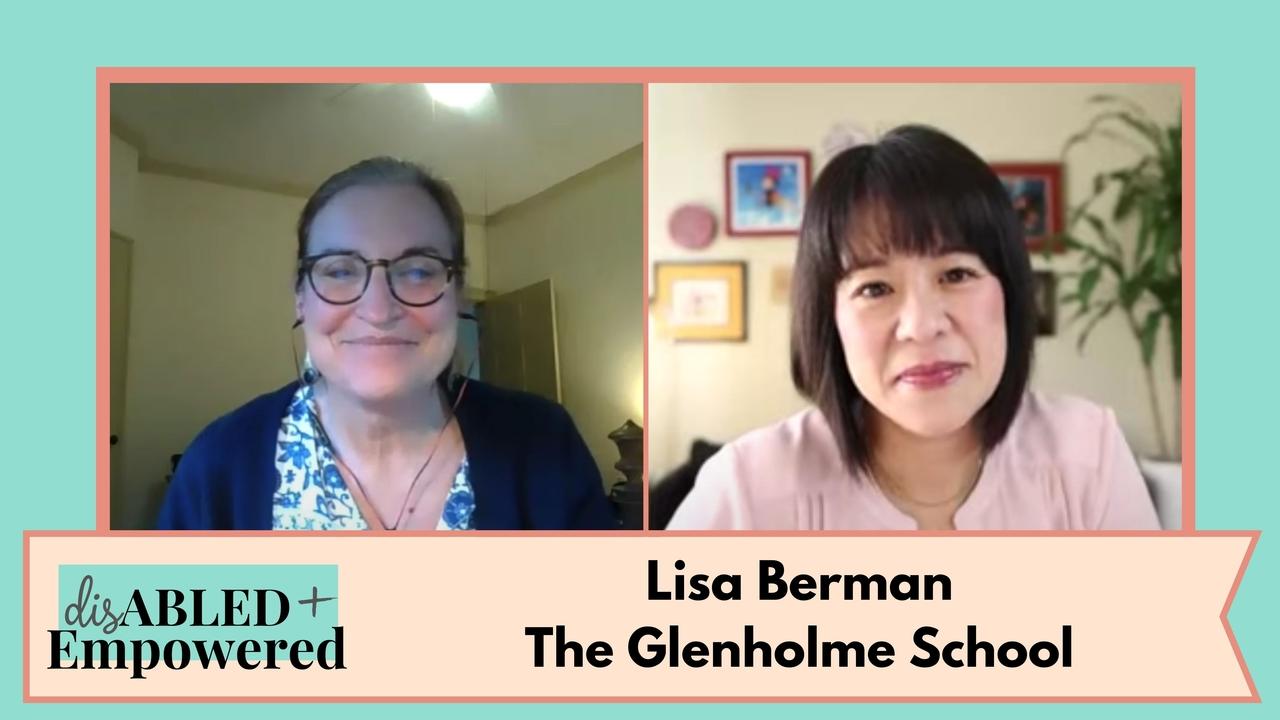
What is The Glenholme School?
It's always great to discover another wonderful placement for my clients. I had the chance to speak with Lisa Berman, Director of Marketing and Community Outreach, at The Glenholme School. The Glenholme School is a therapeutic residential and day program in Washington, Connecticut. Serving 10-21-year-olds on 110 acres of pristine property, The Glenholme School is able to offer a variety of therapeutic and athletic activities, while also providing a setting that grounds, calms, and relaxes.
Lisa shared that the Glenholme program is built on the following pillars: kindness, respect, responsibility, honesty, and fairness. These pillars guide their program and promote the supportive and nurturing environment that allows students to heal, feel safe, to belong, and to grow.
Who does best at The Glenholme School?
Students who do well in The Glenholme School program have average to above-average intelligence with learning disabilities and have another diagn...
Squashing Fear and Reclaiming Life for Neurodivergent Individuals | An Interview with Arolyn Burns
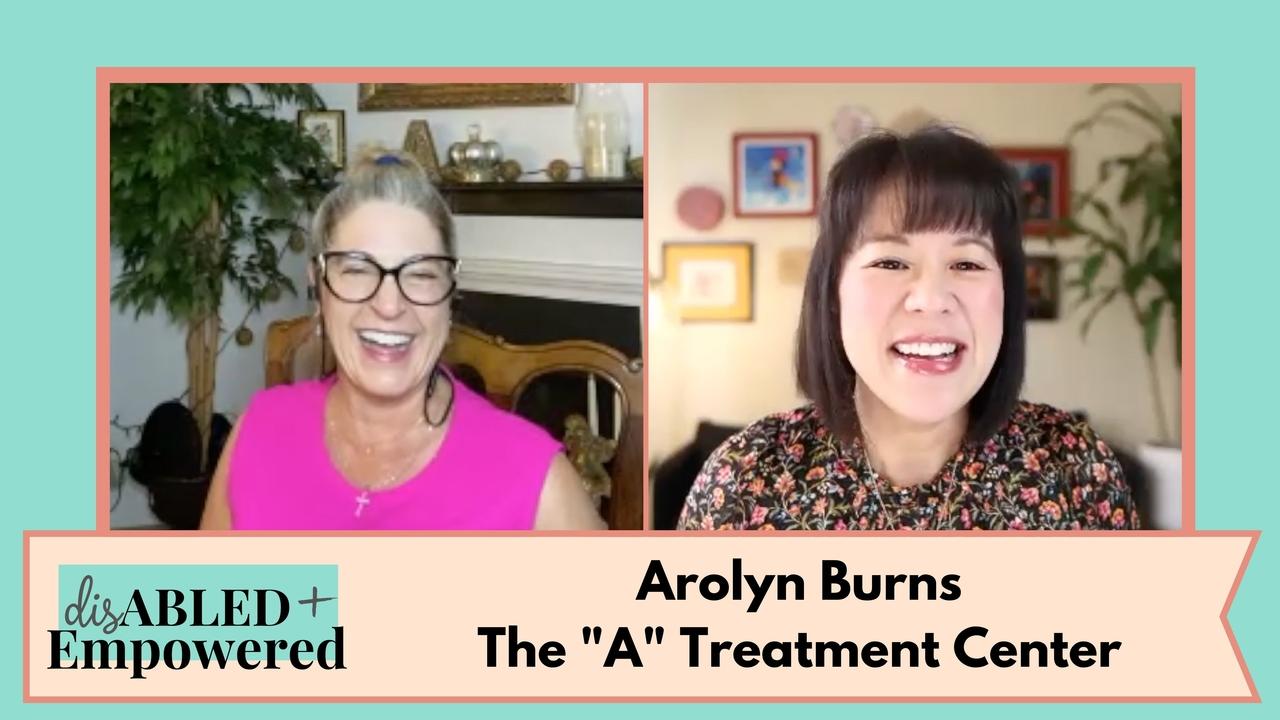
Whiteout
What is trauma? In my line of work, I've run across this repeatedly and see the paralysis it delivers to my clients. It seriously breaks my heart. So, with the desire to improve my own skills, I reached out to one of our local experts and a wonderful colleague of mine to talk about trauma.
Arolyn Burns is a Licensed Therapist and the Director of The "A" Treatment Center. She specializes in the treatment of trauma, anxiety, fears, and phobias. Arolyn's bag of therapeutic tricks reminds me of Mary Poppins' carpetbag, unbounded, and without limits. From hypnotherapy to EMDR to using rocks for grounding, Arolyn is a creative and masterful therapist, individualizing treatment to help her clients face their fears.
Arolyn uses the term "whiteout" to describe what fear feels like when traumatized. When triggered by fear at this level, it's like snowfall is blocking a person's entire vision, the person can't think, and then shuts down. Trauma is an event that triggers a negative in...
CLIMB | An Insider's View of a Residential Program for Visually Impaired and Developmentally Disabled Adults
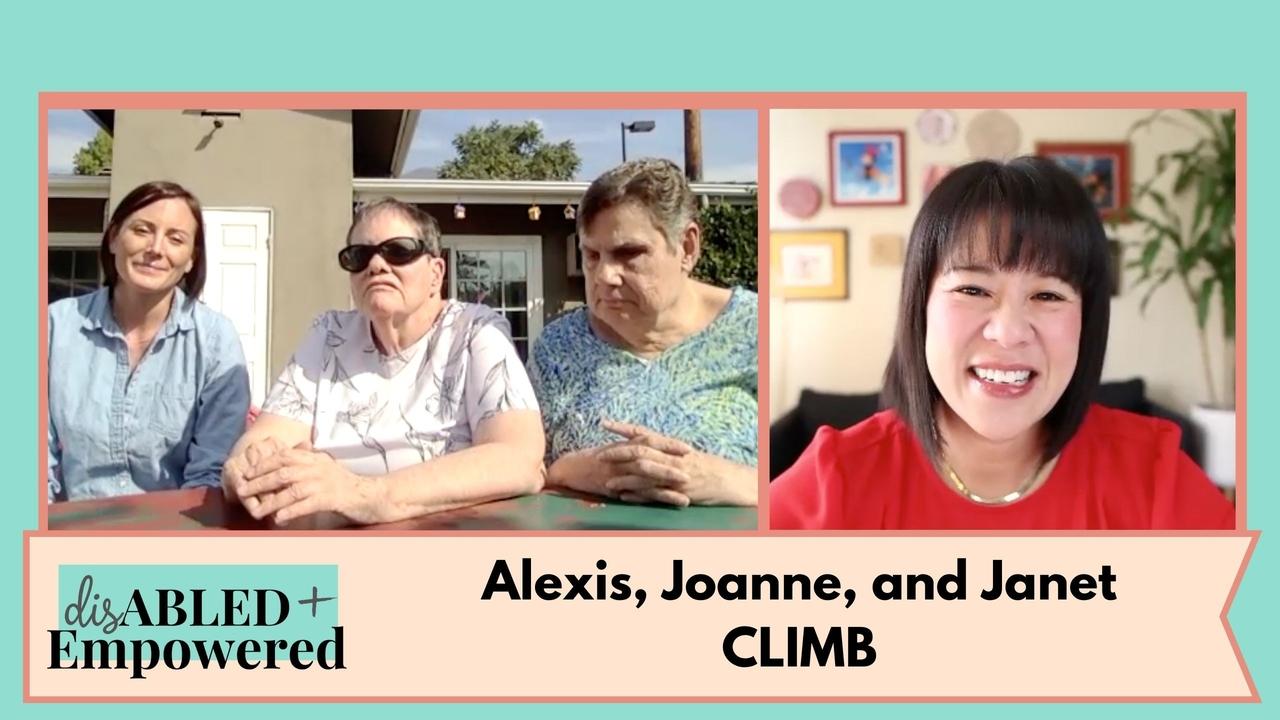
We are family
CLIMB has been supporting the independent living of adults with visual impairments and developmental disabilities for over 35 years. Located in the quaint towns of Sierra Madre (CA) and Alhambra (CA), CLIMB offers residential living and day programming that empowers choices and promotes independence. In an interview with Alexis, Director of Operations, and Joanne and Janet, two long-term residents of CLIMB, I became more acquainted with this special and unique organization. Fun fact: I discovered that Alexis is the founder's daughter and that Joanne and Janet have known Alexis for the majority of her life. CLIMB continues to be family owned and operated today.
More than a place to live
CLIMB is organized into two main arms. CLIMB-Inc. is the residential arm, while CLIMB Transition Services is the day program arm. CLIMB offers personalized residential living options, where adults can live with peers in houses or independently in apartments. Individuals can receive as m...
When do I Need a Neuropsychological Assessment? How Can the Results be Used to Change my Life?
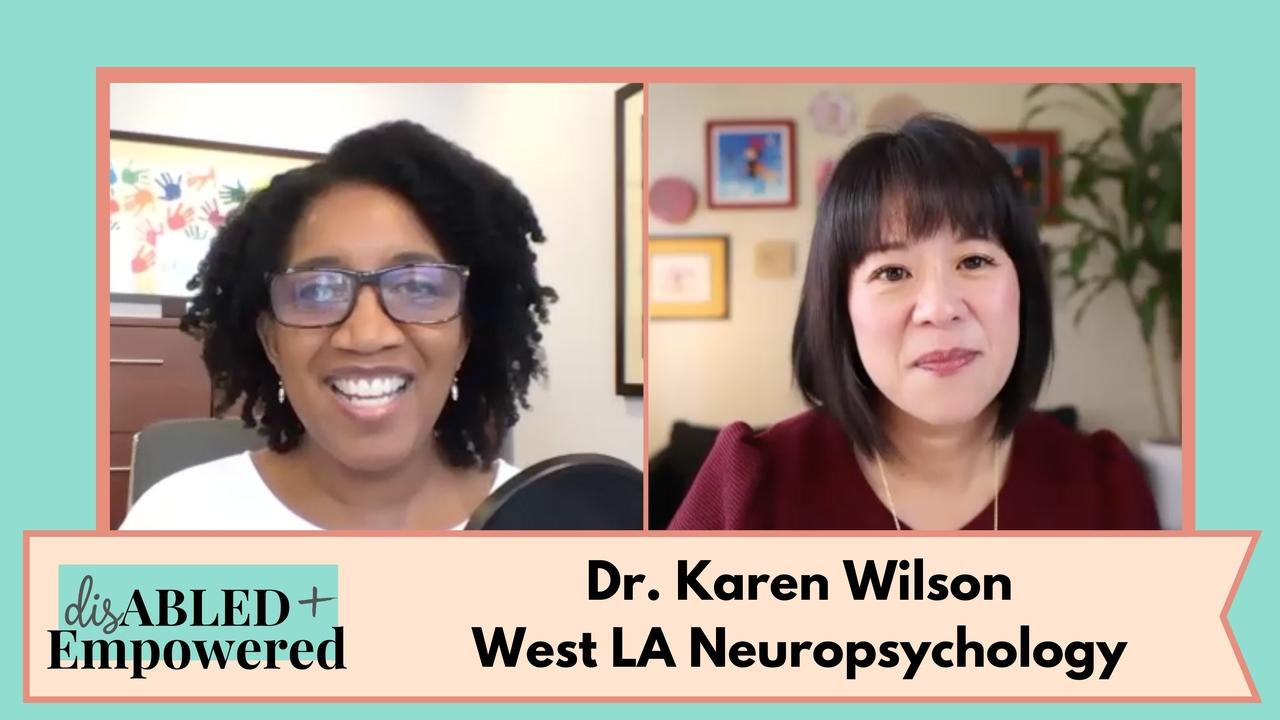
Special Ops
I hit the lottery when Dr. Karen Wilson, a Pediatric Clinical Neuropsychologist from West LA Neuropsychology, agreed to spend time with me for this episode. I think I have a thing for Neuropsychologists. Even though I've interviewed another Neuropsychologist on my channel, I'm always drawn to the way Neuropsychologists think, analyze, and evaluate. They expand my thinking and mesmerize me with their skills. They're like the special ops of psychologists (oh wow, I just made psychologists sound so cool...nice move, me!).
In this episode, Karen helps me split hairs. We talk about how Neuropsychologists are different than Clinical Psychologists and School Psychologists. It comes down to 1) having a doctoral degree and clinical training as a psychologist and then 2) going the extra distance with 2-3 years of laser-focused training in neuropsychology, which (over)simply put, is how the brain develops at different times and what can happen functionally when development is inter...
What is a Daily Money Manager and When do you Need One? An Interview with Sheri Samotin

What is a Daily Money Manager?
One of the perks of my job is to be able to learn from people like Sheri Samotin. Sheri, the President of LifeBridge Solutions and author of Facing the Finish: A Roadmap for Aging Parents and Adult Children, specializes in transition planning and is an expert at supporting individuals and families in the area of personal finances, asset management, and coordinating care.
Since I mostly work with disabled adults, I became fascinated with two professional hats that Sheri wears (and Sheri has more). Sheri is a professional Certified Daily Money Manager. A Daily Money Manager helps people with their day-to-day personal finances. In this role, Sheri helps individuals make and stick to budgets. Sheri's over 10-year experience supporting individuals with Intellectual Disabilities, Developmental Disabilities, substance use, and mental health disorders is evident as she confidently understands how to most effectively support her clients with proven strategies an...
Helping Gifted Adults with Autism Find Meaningful Jobs | An Interview with Jessica Lee

The missing lego brick...found
Calling all Lego builders...have you ever been in that situation when you are on the brink of putting together your masterpiece and you can't find that one brick that you need? Well, finding Jessica Lee from The Spectrum Works is like finding that Lego brick that you need to put it all together.
The Spectrum Works is a non-profit organization that connects gifted adults with autism with corporations that need talent. This isn't as simple as it sounds and Jessica and I get into the process of how this is done.
Prepare the fleet
Yeah, there are a lot of boats. Let's start with corporations. Corporations, specifically ones who are committed to neurodiversity and inclusion, need to be prepared and understand what cultural competency of neurodiversity looks like. This preparation looks like increasing awareness of autism and the laws and regulations (Section 503 of the Rehabilitation Act) that may apply to them. Then, it's promoting inclusive practices an...
What is Inclusion, Why it's Important, and How to Achieve it? An Interview with Danielle Christy
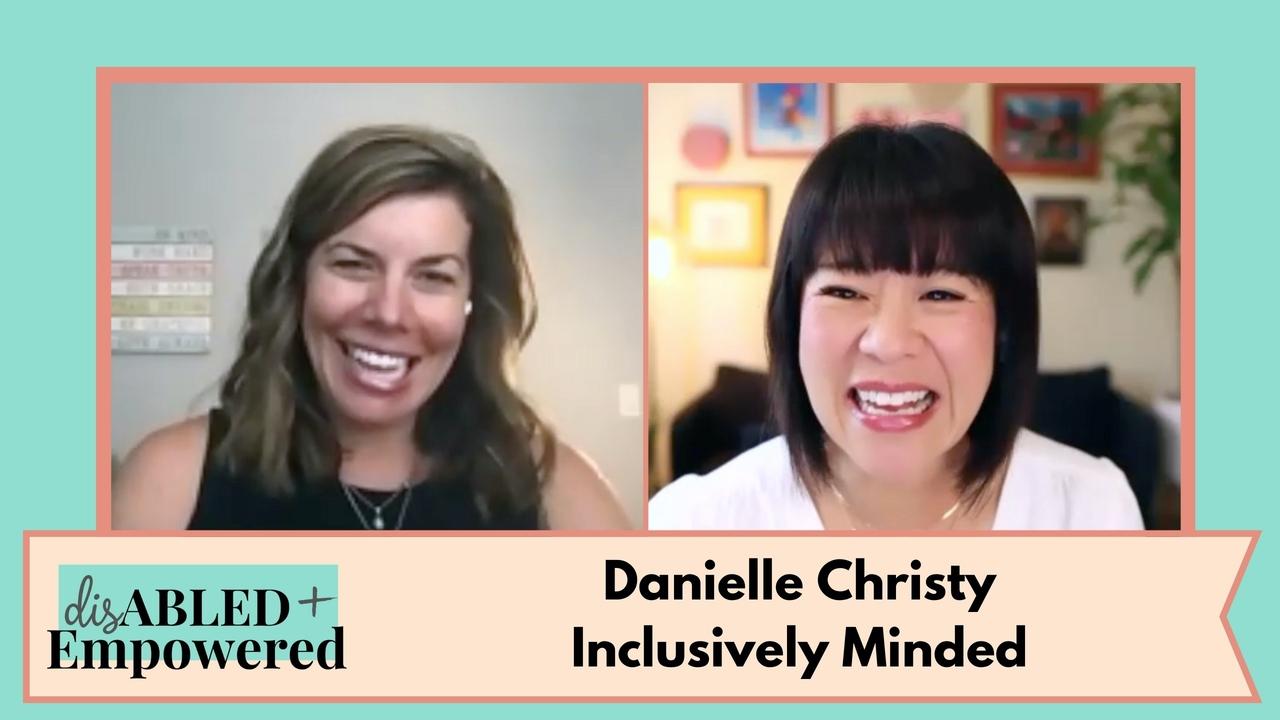
What is Inclusion?
I had the distinct pleasure of spending some quality time with Danielle Christy, a Licensed Educational Psychologist (LEP) with over 15 years in the public, non-public, charter, and contained school settings. Her specialty? Inclusion.
Across the many years of my practice as a Clinical Psychologist with a niche in neurodevelopmental disabilities, I hear the word "inclusion" tossed about. Even though I've spent a lot of my professional career in a classroom, I'm not an educator, so spending time with Danielle, who is an expert on inclusion, was enlightening and it was high time that I did a deeper dive.
According to Danielle, Inclusion is made up of some key components. First and foremost, presume competence. No matter the disability, socio-economic status, or race, believe in the potential of every child, every student...and well, every person. Second, all students should have equal access to the curriculum and supports to access curriculums. Third, equip every te...
What is Scenicview Academy? An Interview with Alex Johnson
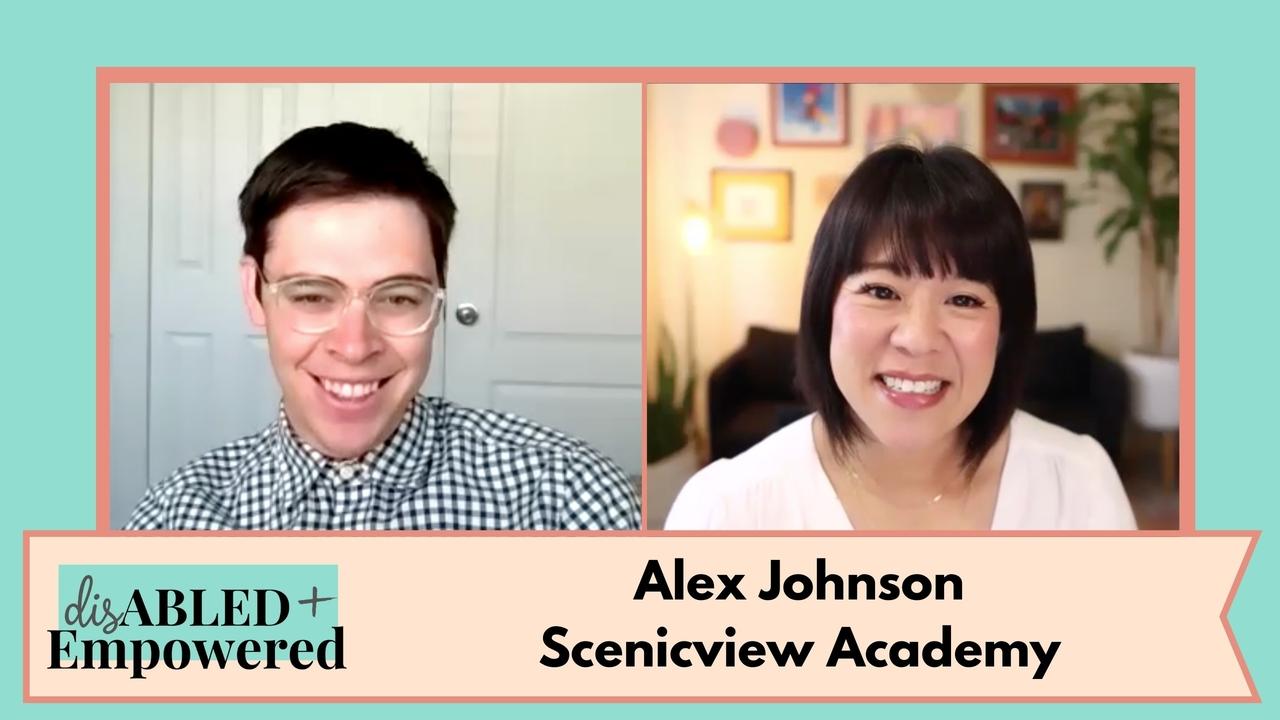
Live. Work. Thrive.
Oh, let's also add empowered and confident. These words were heard, on repeat, during my interview with Alex Johnson, Admissions and Business Development Director of Scenicview Academy (SVA).
SVA is a non-profit school for young adults (18-30yo) with Autism Spectrum and learning disorders. School at SVA doesn't look like your typical or traditional school. Classes are thoughtfully designed and crafted to meet the needs of each student and are conducted IRL in the community. SVA's learning philosophy is that experience is the best teacher, so students hit the ground running immediately with immersion and practice.
Students don't have to be intimidated by the real-life pace or demands of the SVA program because of high staff ratios (fun fact: staff outnumbers students) and a dedicated Service Coordinator and Therapist, who are assigned to every student as part of their treatment team. Support staff are considered mentors and coaches to the students, allowing for ...
What is Brightstone Transitions? An Interview with Jill Allen
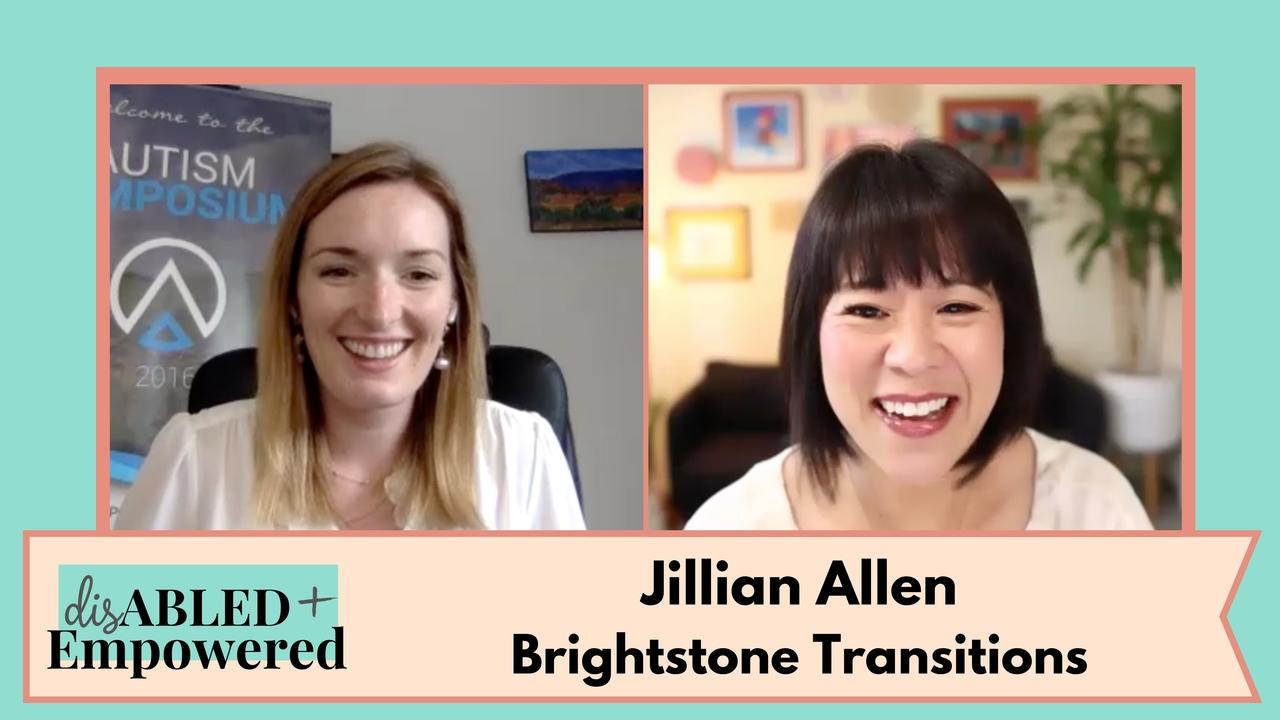
Independence through application
I got to connect with Jill Allen to talk about Brightstone Transitions, a residential transition program in Gainesville, GA. Brightstone focuses on supporting young adults ages 18-26 with an Autism Spectrum Disorder (level 1). With built-in scaffolding through a 3-phase system, Brightstone utilizes a coaching and mentorship model, where mentors live with residents in phase 1. This unique approach allows for organic and in-the-moment coaching, catching and addressing barriers to independence that might be otherwise lost. Additionally, Brightstone's model is community-integrated, utilizing the home and community as the "classrooms" for learning, shaping navigation, and advocacy in real-time. This process or IRL application is how Brigthstone helps residents achieve their fullest independence.
Can't do vs. won't do
It's amazing how powerful language can be. Jill made a point of differentiating between the words "can't" vs. "won't," especially when we ex...
What is Moving Forward Towards Independence? An Interview with Rhonda Daniels
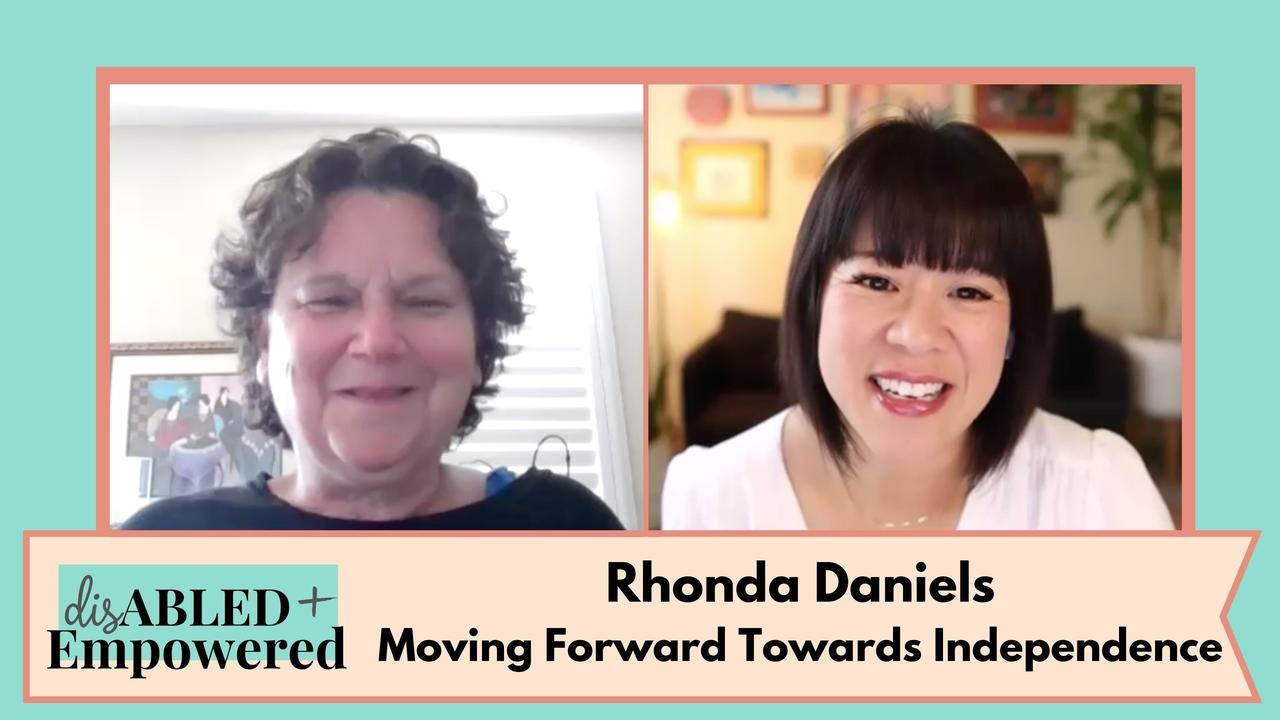
Growth of the whole person
It was super cool when Rhonda Daniels, Executive Director of Moving Forward Towards Independence (Moving Forward), agreed to do an interview for disABLED+Empowered. I've known about Moving Forward for a while and given my specialty with teens and adults with neurodevelopmental disabilities, they have been on my radar.
Moving Forward is a unique program that has a strong identity with a proven track record. They know what they do and do it well. Serving non-college-bound adults with developmental disabilities, learning disabilities, and autism spectrum disorders, they focus on the growth of the whole person (read: not academic). They help adults meet their personal potential vocationally and socially while filling in the gaps (if needed) for daily living. Classes and groups are offered by interest and are crafted by staff who will stop at nothing to make learning fun and meaningful (enter Pokemon Go for social skills and executive functioning training). The...
